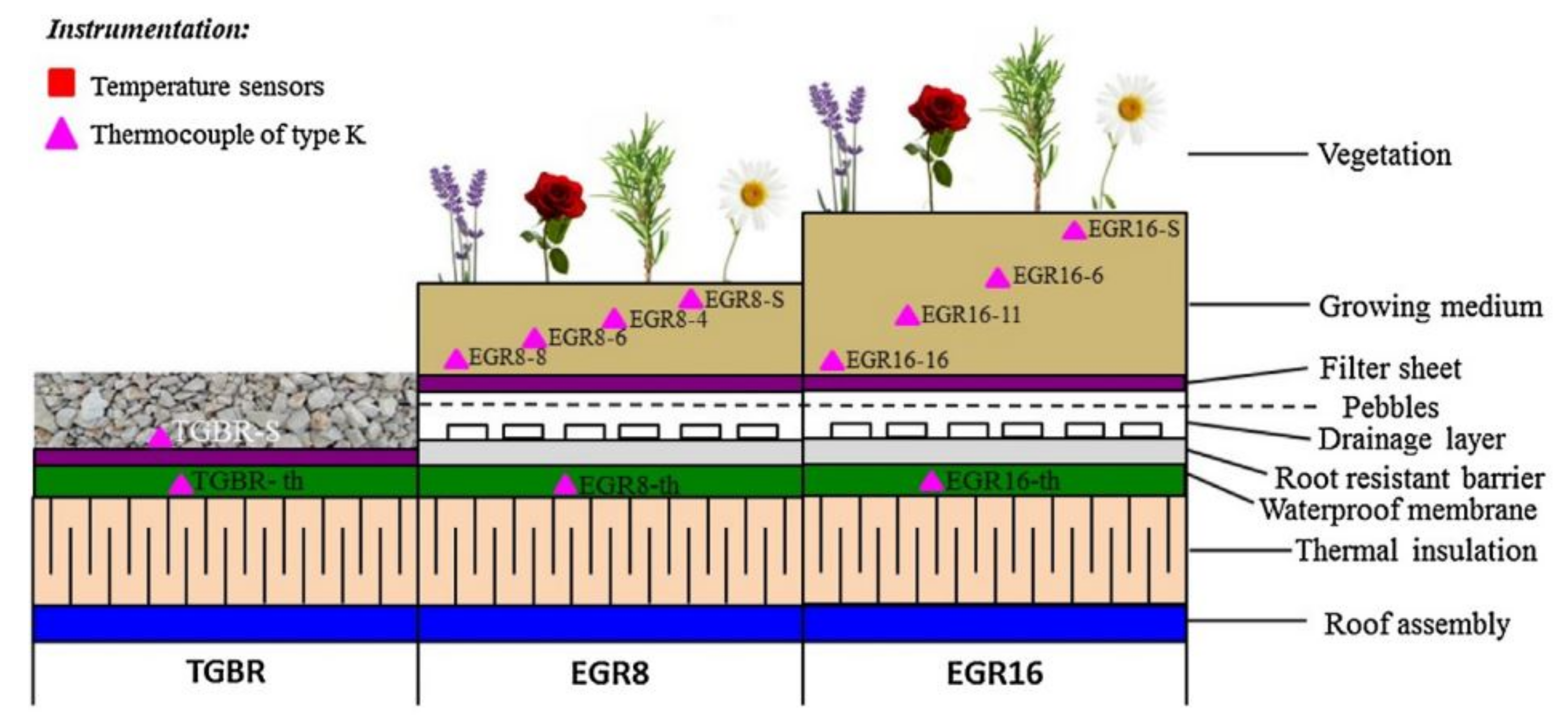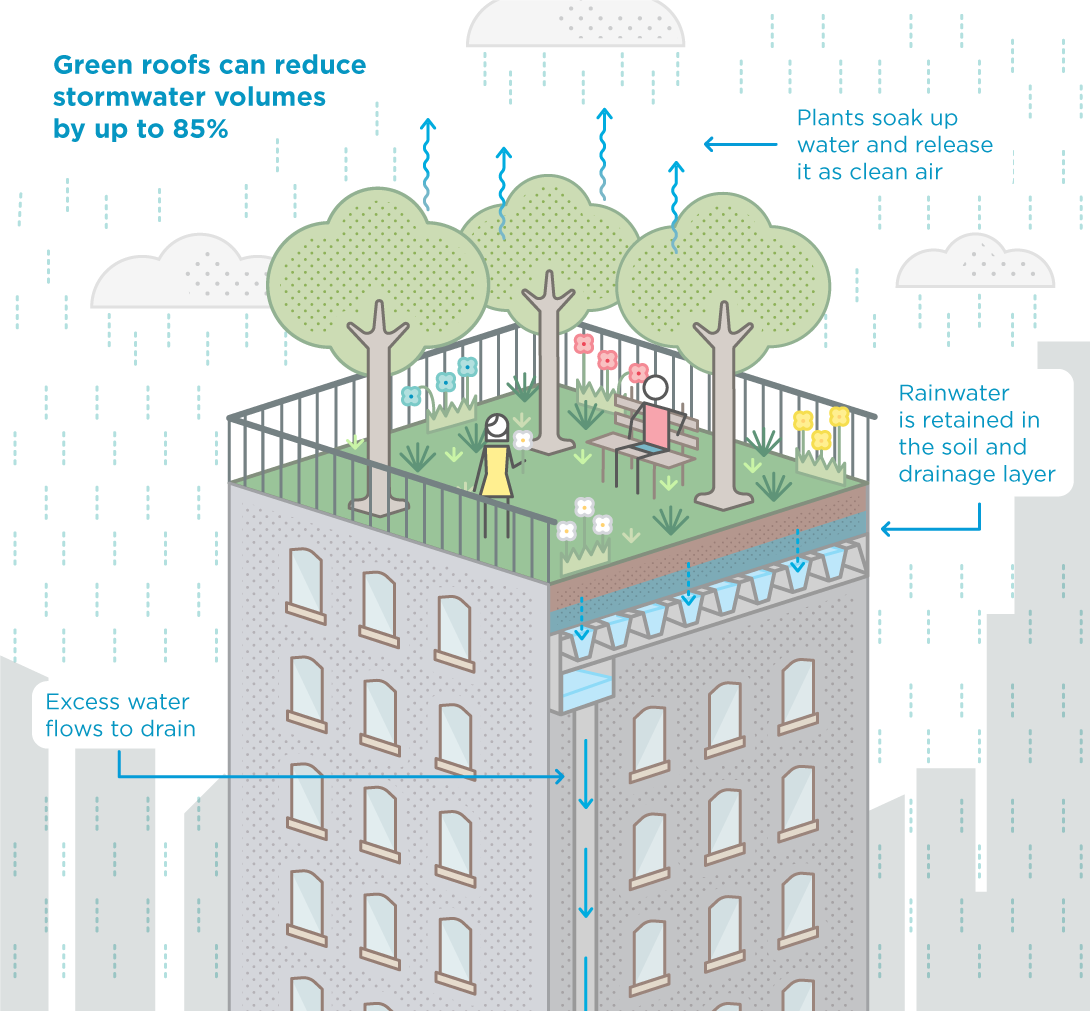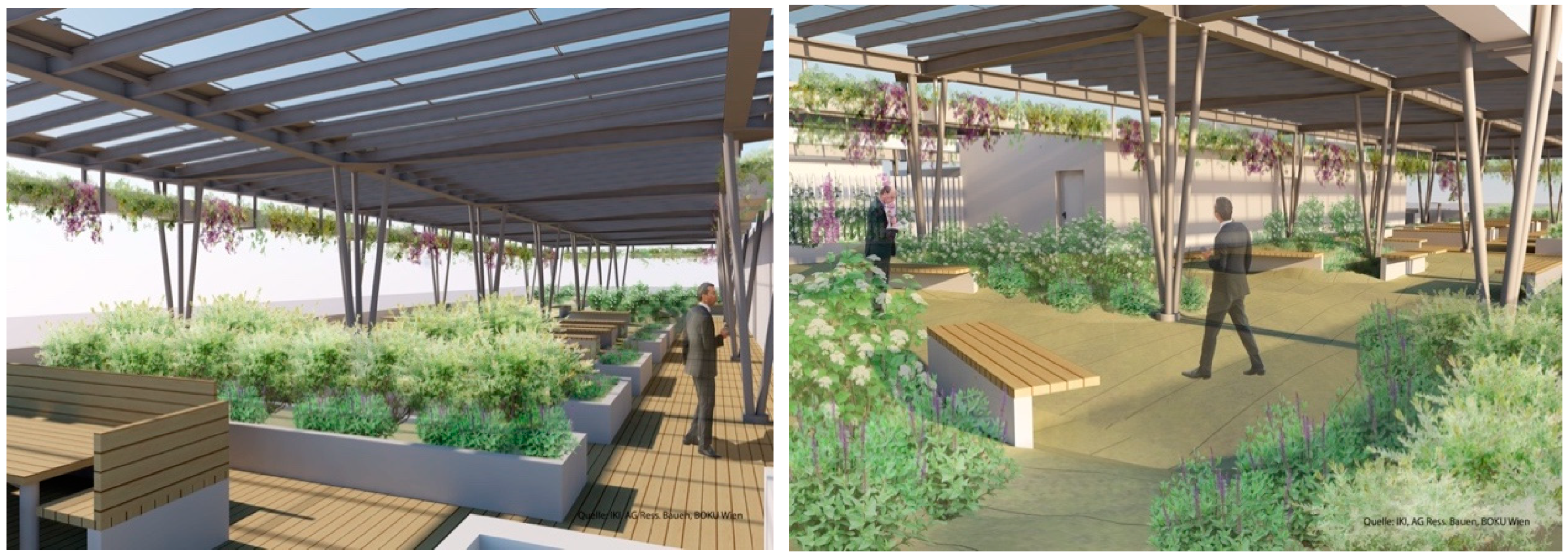These generally require a 5 15cm 2 6in depth of growing medium that can consist mainly of lightweight inorganic materials such as perlite leca sand rockwool and crushed tiles or concrete.
Green roof typology.
These reported benefits suggests that green roofs could play a significant role in sustainable urban development and consequently green roofs are now widely used as tools in urban planning strategies.
There are two types of green roof.
Green roofs and great savings.
The classification uses four generic features that branch into multiple subfeatures.
One of the hottest trends in residential roofing is going green.
No two roof gardens are alike.
Heat islands are created by buildings and pavement that absorb sunlight during the day and release the energy as heat in the evening.
That said there are three primary types.
In an association with an expanded typology it forms a dually structured whole.
Homeowners not only want to find ways to save on costly utility bills but also conserve the environment.
On the same hand in north american cities such as mexico city the reduction rates of annual property tax vary between 10 and 25 depending on the green roof typology extensive or intensive respectively mexico city 2015.
This system has greater planting options due to greater soil availability.
Gaiss has designed a private house for a young family within the green suburbs of riga latvia.
Abstract green roofs are often claimed to provide a range of environmental economic and social benefits or ecosystem services.
A shallow and lighter system this is the most common type of live roof.
The challenge of the project was to transform the peculiarity of an l shaped plot into a spatial.
However some other locations have been at the forefront in this type of incentive policy.
A deeper green roof system where soil depths range from 6 to 10.
Green roofs can be public space private space or ecological space.
Green roof typologies 5 replies jorn utzon called green roofs the fifth façade and there are many ways in which the public can interact with the new landscapes evolving on roofs in our cities.
Intensive roofs which are thicker with a minimum depth of 12 8 cm 5 1 16 in and can support a wider variety of plants but are heavier and require more maintenance and extensive roofs which are shallow ranging in depth from 2 cm 13 16 in to 12 7 cm 5 in lighter than intensive green roofs and require minimal maintenance.
The proposed green roof classification is a foundation upon which russia will develop its green architecture and natural urbanism.
Green roof benefits heat islands especially in urban areas negatively affect microclimates by raising temperatures and altering air movement patterns.



























